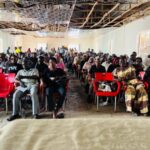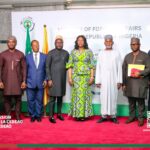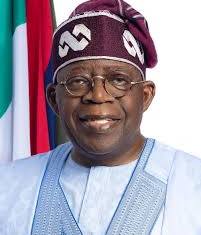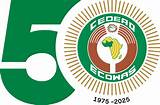ECOWAS vs. AES: Can West Africa’s Unity Survive the Test of Sovereignty and Reform, Would Diplomacy Fail?.
By Raymond Enoch.
In the heart of West Africa, a political storm has been brewing for sometimes now, and its tremors is shaking the very foundation of regional unity, integration and cooperation established since 1975. The emergence of the Alliance of Sahel States (AES)—comprising Mali, Burkina Faso, and Niger—has signaled a bold defiance against an established treaty and protocols under the Economic Community of West African States (ECOWAS). At stake is not just the fundamental image and integrity of ECOWAS, but the future of regional cooperation, peace, and progress in West Africa as built by the founding father’s of the ECOWAS.
The AES countries on the hand, led by military governments, have raised concerns about sovereignty, their resource control, and perceived foreign influence. These nations, rich in natural resources, lament their long-standing inability to harness these assets for the benefit of their people. They point fingers at former colonial powers like France, and international actors like the UK and USA, accusing them of economic subjugation and military overreach. This, they say, has only deepened internal resentment and breeded disillusionment.
Yet, while these grievances are not without merit according to some quarters, one must ask: Can they be resolved within the ECOWAS framework? Is there still room for diplomacy and reform within a community that was founded on cooperation and mutual progress for the West African people?
The ideological divide is stark especially borne by AES Countries . On one hand stands ECOWAS, a regional institution built on principles of democracy, free movement, and economic integration Fifty Years ago. Since its formation, it has worked to foster peace, provide employment opportunities across borders, and supported nation-building efforts in member states—including the AES countries.
On the other hand, the AES who were hitherto members of ECOWAS argue for a redefined path—one that reflects homegrown governance structures and resists foreign domination. Their calls for populist reforms and institutional change have resonated with segments of their population disenchanted by years of democratic stagnation and wrongly perceived ECOWAS indifference.
Yet, the path they’ve chosen which is—military-led governments suspending civil rule—raises significant concerns for any democratic environment. Not only does it violate ECOWAS protocols on democratic governance, but it also threatens the very fabric of regional cohesion.
Amidst the geopolitical posturing, one core element often gets overlooked: truth. In times of transition and tension, the integrity of information becomes even more critical. Analysts, diplomats, and media professionals alike emphasize the need for verified facts and unbiased reporting. Disinformation or manipulated narratives only deepen divides and derail genuine dialogue.
As stakeholders even the authorities and government of the ECOWAS Commission attempt to bridge the gap, the pressing question remains: Can neutrality be maintained in a region increasingly pulled by opposing ideologies, Military junta populism versus democratic principles and governance in the ECOWAS?
ECOWAS has responded to the military takeovers with sanctions and suspensions, citing treaty violations. But these measures have also triggered further estrangement. The AES countries accuse the regional body of being heavy-handed, failing to understand their internal struggles, and showing little sensitivity to their reform agendas.
The military juntas argue that a hasty return to civilian rule, without meaningful institutional reform, would be a return to the status quo they seek to upend. This stance, however, raises fears of prolonged military rule and democratic backsliding—trends that ECOWAS was designed to prevent
Despite the growing tensions, experts believe the ECOWAS Treaty and its protocols still offer a viable path forward. Constructive engagement, mutual respect, and a focus on the region’s shared goals—peace, prosperity, and people-centered governance—must guide the way.
The ECOWAS Commission must reinforce its founding ideals, demonstrating flexibility where needed, and firmness where necessary. AES countries, too, must recognize the value of regional cooperation and the dangers of isolation.
In this unfolding saga of sovereignty, reform, and regional unity, one thing remains certain: West Africa stands at a crossroads. Whether the road ahead leads to reconciliation or rupture will depend on the choices made in the coming months—not just by leaders, but by citizens, institutions, and regional partners alike.
The Military Juntas who are in government in all AES Countries indulge in promoting purging tendencies, appealing for time to consolidate power , creation of make believe anf creation of visibility of reforms in the economy to show a difference etc . ECOWAS has maintained an open door call for them to rejoin the Institution, showcased the impact that ECOWAS Commission has made fifty years back in areas of security, technology Innovations and cooperation in addressing Regional development.ECOWAS has institutionalized agencies and structures that is enhancing diplomacy and cooperation within the framework of UN, AU and other international Organizations engaging with such bodies in addressing Regional problems .Would diplomacy fail or can military ideology supercedes reasoning of the Wise counsel of elders in West Africa? The Fifty Years history chapter must not be closed this way . History is watching.








